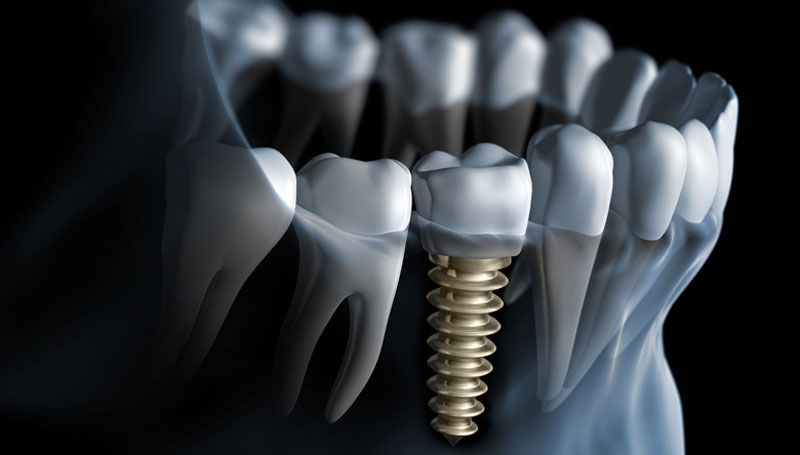
Why Your General Dentist Should Place Your Dental Implant
First, I want to say we are blessed with truly wonderful and talented dental specialists in our area. I still refer to them for complicated dental implant cases. When I make a referral to them it is because I want what is best for my patients. I have not had the advanced training and experience they have, but I have had the training and experience necessary to place dental implants in the ideal situations. What I hope to achieve with this blog is to inform patients that there is a lot of thought and planning that goes into placing a dental implant and restoring it. It is not like putting a filling in a tooth. As a General Dentist, I look at a patient with the restorative plan from the beginning. I look at the end result from the beginning. I plan the case with the end in mind. If the implant is placed at an angle not conducive to the final crown or denture there will be issues with how a patient bites, or how the implant holds the denture or even how it looks to the patient’s eye.
We are blessed with outstanding technology in dentistry today that allows us to virtually plan a patient’s case from start to finish. If the patient does not have ideal bone in the area that the dental implant needs to be to hold the final restoration in the correct way then we can refer to our wonderful specialists to build up that site before placing the implant. Communication between the general dentist and specialist is key. Planning the final outcome prior to making the referral is so important. Many times, general dentist just refer out to the specialist, the specialist places the dental implant where there is ideal bone, releases the patient back to the general dentist to restore it and the general dentist gets frustrated because they have to spend extra time and money to alter the restoration to fit the angle or placement of the implant so that the final restoration looks and functions as it should. It sounds exhausting, and from my experience it is! That is why I began to take training course in dental implantology. I now place my own dental implants in the sites that are ideal and I don’t expect complications. I have invested in the technology to evaluate those sites and plan the final outcome virtually so that I know if this is a case I can do or should be referred out to my talented colleagues.
Dental implants are becoming more and more affordable and more and more in demand. They have the potential to last a patient their lifetime if done correctly. They are the more permanent treatment. Not everyone’s potential for success is the same. If a patient is a smoker they have a lesser chance of the dental implant fully integrating and lasting its lifetime. If a patient has certain medical conditions they may not be a candidate for dental implants. A comprehensive dental exam and proper radiographs are a must to evaluate whether or not a patient can have dental implants. Sometimes taking models of someone’s mouth is needed. After evaluating the site for the implants we may need what is called a surgical guide that allows for accurate guided surgery of where that implant goes. Dental implants come in all shapes and sizes but depending on where that implant needs to be placed, if we are off by 1mm it could mean the difference between success and failure. A healthy mouth is also key. If there is untreated gum disease the dental implant is more likely to fail. If a patient has poor dental hygiene or sips on soda all day, the implant is more likely to fail.
Dental implants are a process. There will be ups and downs. It will most likely take 6-10 months to get where you are going. But having a good relationship with your general dentist and their team can help you through the process.
Dental implants can change a person’s life, especially if they are used to hold a lower denture. But, proper evaluation and planning are key to their success. This all starts with the dentist who is going to place that final restoration. If you or someone you know is interested in dental implants, whether it is to replace one tooth or all their teeth a general dentist, with the proper training, is the first step. At Back 2 Basics Dentistry we are ready to guide our patients through this process.